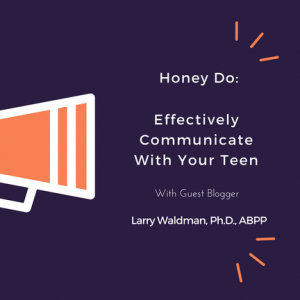Having a teenager who engages in self-injurious behavior, and from your view point (as a parent), an overreaction in various situations and chronically moody is quite the challenge to manage as a parent. It is important to you that your child feels loved, understood, accepted, and cared for. You have tried speaking with your child about their reactions, encouraging them to look toward better days, and in some cases, you have connected them with various mental health providers. In spite of your efforts, you found that nothing has worked.
Emerging Borderline Personality Disorder or, what I like better, Emotional Dysregulation Disorder is something that many teens are experiencing. Their emotions are really overpowering, and it effects their ability to make skillful choices. When their emotional responses are activated (due to internal or external stress), their reactions are intense and seemingly ‘too much’ for the context of the situation. It may take them a longer time -hours or days before they get back to their emotional baseline (their typical functioning). And, with the reality that us humans experience dozens of emotionally provoking situations daily, it can be a while before your teen feels better.
When emotions intensify, especially the unpleasant ones, our brain gets hijacked and it makes it difficult to think with clarity. Not only do we have mental blocks against clear thinking, we feel the emotional intensity in our bodies, giving us an urge to act or do something with the extra energy. In ideal circumstances, we use skillful means like exercising, spending time with a friend, watching something pleasant on television, or perhaps we take a nap.
For teenagers with Emotion Dysregulation Disorder, there may be use of ineffective means to cope with overwhelming emotions, such as self-injury, substance abuse, engaging in reckless behavior like shoplifting or having indiscriminate sex, or attempting suicide. Although those approaches to ‘treat’ the emotional overwhelm experienced is ineffective- it does make sense.
It makes sense because engaging in risky behavior triggers the reward center of the brain, thereby reducing the emotional pain or at the very least creating a big distraction from it, it works … in the short-term. In the long-term (and here is where things become problematic), the youth is on the path of more self-injury, an urge to use more drugs/alcohol, possibly catch legal charges, experience STIs or unwanted pregnancy, as well as taking their life due to their urge to end emotional pain.
It does not have to be that way. While it will require hard work and lots of practice, your teen can work towards managing their emotions, tolerating stress skillfully, having pleasant relationships with the meaningful people in their lives, and know what they are feeling before it becomes too overwhelming.
There is research that shows the effectiveness of Dialectical Behavior Therapy for teens with this experience- from my own facilitation of this treatment approach with this population (e.g., teens), I know this to be true. Here is the breakdown of DBT:
1. Individual Therapy – a therapist meets with the child one-on-one to discuss their emotions and urges while targeting the behaviors to be taken off the table as a means to cope
2. Skills Training Group (Family Skills Training Group) – the teen and/or their parents learn ways to manage their emotions, urges, and actions skillfully while learning how to speak the same behavioral language
3. Telephone Coaching – the therapist or skills trainer provides in the moment coaching on how to use the skills learned in the moment, helping build a sense of mastery
4. Therapist Consultation – the therapist meets with a team of their DBT trained colleagues to discuss cases so they can be skillful clinicians
5. Access to Services (Psychiatry, Case Management/Mentors) – additional supports in place, beyond the therapist and skills trainer enhances the youth’s and family’s functioning, strengthening attachment and fostering trust within their relationships
By putting this approach into practice, your teen can work toward creating a life worth living. And as a family, work can be done to create a family worth being in.
If you or someone you know would benefit from receiving therapy or interested in learning more about Dialectical Behavior Therapy for teens, please call me at 702.550.9035 to schedule an appointment. I am happy to provide additional support and guidance.
Until next time …
Peace!!!




